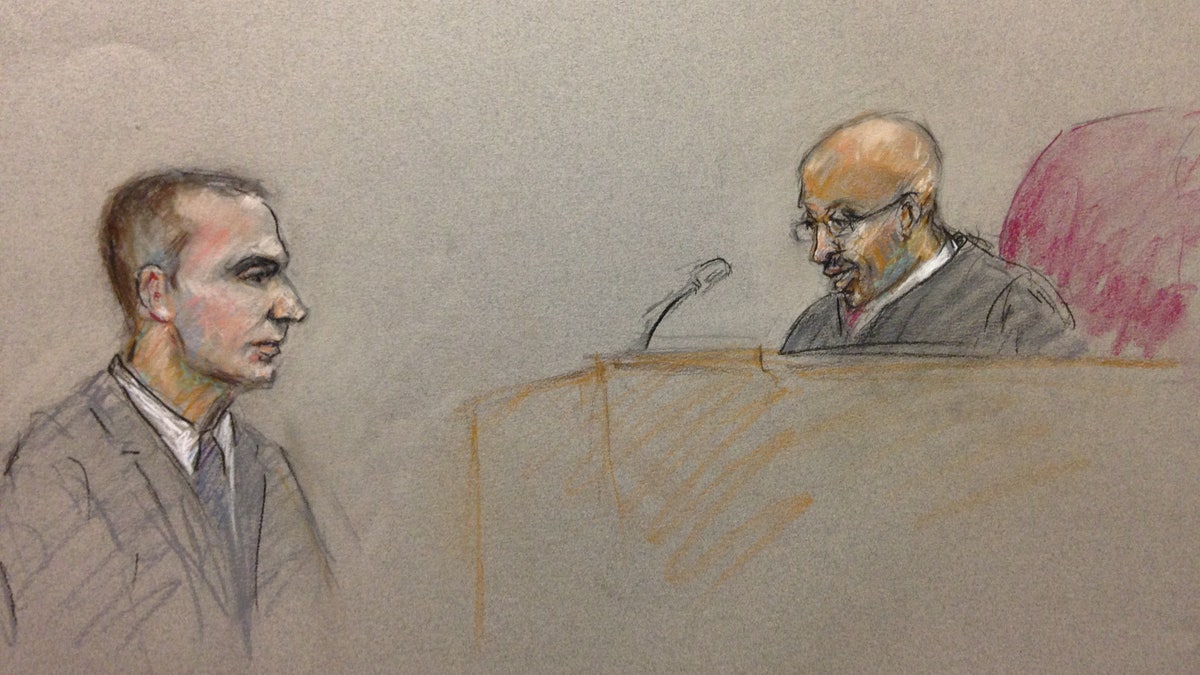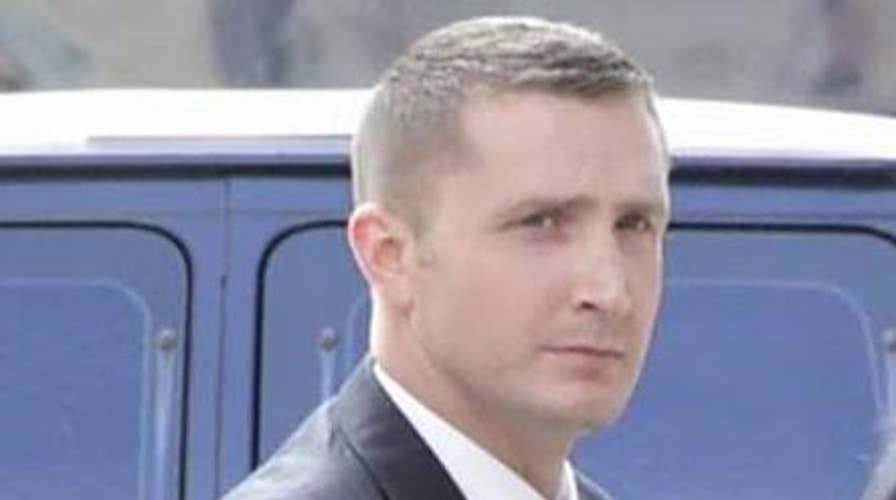A judge in Baltimore Monday found a police officer not guilty on all charges against him in connection with the death of Freddie Gray in police custody, months after another officer's trial ended in a hung jury.
Meanwhile, riot-trained officers from outside Baltimore started to arrive in the city in case of any unrest.
Officer Edward Nero faced second-degree assault, misconduct in office and reckless endangerment charges. Prosecutors said the 30-year-old unlawfully arrested Gray without probable cause and was negligent when he didn't buckle the prisoner into a seat belt.
"Officer Edward Nero, his wife and family are elated that this nightmare is finally over," defense attorney Marc Zayon responded.
In a lengthy analysis read from the bench, Baltimore Circuit Judge Barry Williams said Nero's partner, Officer Garrett Miller, detained and arrested Gray himself. Williams said Nero did not act "corruptly" with an intent to commit a crime.
He also said the state failed to prove that Nero was informed and aware of an updated transport policy regarding seat belts.
"As the eyes of the nation are upon us, I have no doubt we will all exhibit behaviors that represent the very best of Baltimore," Police Commissioner Kevin Davis said.
"Although the criminal case against Officer Edward Nero has come to a close, the internal investigation has not. With that, Officer Nero's status will remain unchanged. He will remain in an administrative capacity while this investigation continues," police spokesman T.J. Smith added.

Officer Edward Nero with Baltimore Circuit Judge Barry Williams. (Sketch artist Betsy Kirk)
"Officer Nero is relieved that for him, this nightmare is nearing an end. Being falsely charged with a crime, and being prosecuted for reasons that have nothing to do with justice, is a horror that no person should ever have to endure," the Baltimore City Fraternal Order of Police responded.
As the verdict was read, Nero dropped his head down and his attorney placed a hand on his back. The courtroom was quiet. When the judge said he was not guilty, Nero stood up and hugged his attorney, and appeared to wipe away a tear.
Several angry protesters surrounded Nero's brother as he left the courthouse protected by armed security officers, shouting "no justice, no peace."
"This is our American system of justice and police officers must be afforded the same justice system as every other citizen in this city, state, and country... In the case of any disturbance in the city, we are prepared to respond. We will protect our neighborhoods, our businesses, and the people of our city," Mayor Stephanie Rawlings-Blake said.
Nero opted for a bench trial rather than a jury trial. A judge declared a mistrial for Officer William Porter in December.
Gray died April 19, 2015, a week after his neck was broken in the back of a police transport van while he was handcuffed and shackled but left unrestrained by a seat belt.
His death set off more than a week of protests followed by looting, rioting and arson that prompted a citywide curfew. His name became a rallying cry in the growing national conversation about the treatment of black men by police officers.
Tessa Hill-Aston, president of the Baltimore chapter of the NAACP, said the case "speaks to a lack of training, lack of protocol" that officers didn't see that Gray should've been buckled into the seat.
On the morning of April 12, 2015, Nero, Miller and Lt. Brian Rice were on patrol in Baltimore's high-crime area of the Western District when Rice made eye contact with Gray and he ran away. Rice called for backup, and Miller and Nero responded. According to testimony, Miller, who'd jumped off his bicycle, caught up with Gray and placed him in handcuffs.
Nero's attorney, Marc Zayon, said Nero touched Gray to help him up from the ground after he'd been handcuffed and was asking for an inhaler.
Gray was placed in the back of the transport van, seated on the wagon's bench.
A few blocks away the van stopped, and Rice and Miller took Gray, who police said had been kicking, screaming and shaking the van, out of the wagon, placed him in leg irons and replaced his metal cuffs with plastic ones. The officers, with Nero's help, loaded Gray back into the van, sliding him into the compartment on his belly and head-first.
That was the second and last time Nero touched Gray, his attorney said during the trial.
Prosecutors said the officers should never have arrested Gray without first patting him down to determine whether or not he was armed and dangerous. In failing to do so, the officers violated the rules for a routine stop. Without probable cause, Gray never should have been taken into custody, they said.
The judge disagreed.
Shortly after Gray's death, State's Attorney Marilyn Mosby charged six officers. Three of them are black; Nero and two others are white. The other officers are set to have separate trials over the summer and into the fall.
The assault charge against Nero carried a maximum penalty of 10 years in prison and reckless endangerment carried a punishment of up to five years.
Nero's attorney argued his client didn't arrest Gray and that it was the police van driver's responsibility to buckle in detainees. The judge said police training materials dealing with transport safety were clearly aimed at drivers.
The defense also sought to convince the judge that the department's order requiring that all inmates be strapped in was more suggestion than rule because officers were expected to act with discretion based on the circumstances of each situation.
Fox News' Griff Jenkins, Kara Rowland, Leland Vittert and The Associated Press contributed to this report.


